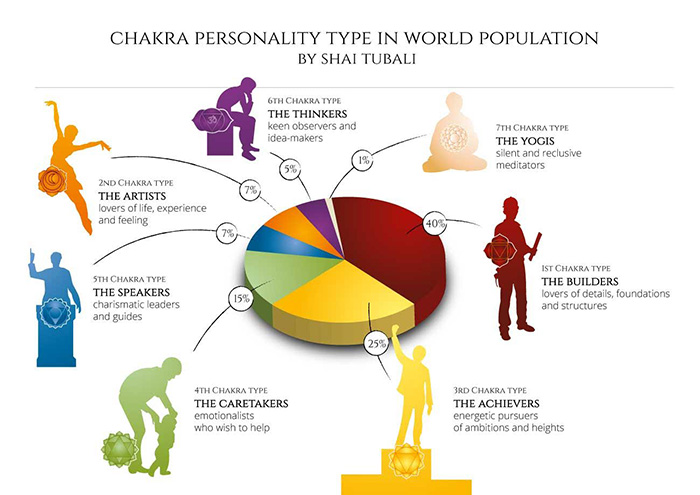
Do you sometimes judge others?
I don’t mean the kind of judgment that you express outwardly, to someone in the moment.
But do you judge people behind their back?
Or perhaps silently, through thoughts and feelings you conceal, and even bury within yourself?
I won’t judge you for admitting that you do.
The fact is we all do it.
Even those who consider themselves to be honest, altruistic people make conclusions about others based on the way they view the world. The truth is that no matter how much we were told—by our parents, teachers, or our church—that judging is only God’s business, we still find it entertaining and sometimes even irresistible to form opinions about others. We may judge a person we pass on the street, our colleagues, friends, or even entire groups of people or cultures.
Why do we do this?
We judge people because we think they should be more like us: they should behave the way we do, possess the same values, and make the same choices. Why on earth do we make such an unreasonable assumption? We certainly wouldn’t want to live in a world populated by eight billion people just like us, yet our judgment discloses an expectation that our way of being or doing is superior to others.
How can we break the judgment habit?
Surprisingly, the chakras offer us a solution. This ancient, energetic system can help us stop “othering” people and make space for more understanding, tolerance, and acceptance in our lives.
The chakras have been widely popularized as a system for healing and balancing, based on symbols, colors, visualizations, and breathing exercises. But this wondrous system also provides seven ways to look at the world. Each chakra provides a lens through which we can see, experience, and perceive the world.
Even though each of us has seven chakras, we all possess one that is far more active than the others. This chakra determines our attractions and inclinations, our values and passions, and how we find meaning in life. Each chakra is a distinct personality type, and when we examine them in this light, we can learn to appreciate others, and help ditch the habit of judging them.
The Seven Chakra Personality Types
Here is a brief overview of the seven chakras, their unique gifts, and the way they are often judged by others. Can you find yourself and those you know well in these descriptions?
The Root Chakra: The Builders
Builders are the stewards of all of life’s small details. They are responsible for establishing and maintaining the structures and infrastructures of our society. They love hard labor and slow, persistent work. They are content to settle down, conform to conventional frameworks, and steer clear of adventures and risks.
We often take this chakra type for granted, though we benefit from and enjoy the law and order they establish. Other types often can’t appreciate a Builder’s capacity to delve so deeply into what might seem like unrewarding work. We might find them boring or unimaginative, yet they teach us how to be diligent, forward-thinking, and stable.
The Sacral Chakra: The Artists
Artists are lovers of life, the pleasure-seekers, and are endowed with the capacity to feel intensely and profoundly. They easily move between the extremes of feeling wonderful and then terrible, as everything is a peak experience. They live in the here and now, and wherever they go they bring their intense, flaring presence. Yet they may quickly disappear, moving on to their next adventure.
To others, Artists seem to suffer from Peter Pan Syndrome: they never want to grow up, they don’t take life seriously enough, and they are unreliable and disloyal. They are, however, the people who bring color into our world with art and music, laughter and beauty, passion and feeling. This chakra type teaches us to appreciate this very moment and realize that life is not somewhere in the distant future, but right here, right now.
The Solar Plexus Chakra: The Achievers
Achievers are the world’s marathon runners. They ambitiously move forward while keeping their eye on the prize. They are the warriors and the conquerors who want to reach the mountaintop to stick their flag in the ground—and take pride in the fact that no one has done it before. They are focused on success and status, and they take pleasure in setting a goal, usually a lofty one. They are always busy, dislike any interruptions, and are sometimes so focused that they see nothing else.
To the other chakra types, Achievers seem to be uncaring, robotic workaholics. They may also come across as materialistic, greedy, and possessive. They are, however, the people who push our society forward toward progress and new heights. These chakra types teach us strategy, self-discipline, and how to have willpower.
The Heart Chakra: The Caretakers
Caretakers are governed by the emotional center. They seek intimacy and union with others. For them, the only thing that matters in life is love. This chakra type focuses on one or a few close relationships—with a partner, a child, or a spiritual teacher to whom they are completely devoted—sometimes to the point of self-sacrifice. Caretakers are sweet, gentle, and generous beings.
To others, Caretakers may seem overly emotional, dreamy, and naive. They may appear to be stuck in the past or refuse to let go of attachments that are holding them back. At the same time, Caretakers remind us that at the end of the day, it’s not about how much you accomplished, but how full your heart is. These nurturing souls help to balance our ambitious, competitive society and as such, they teach us devotion, sensitivity, and compassion.
The Throat Chakra: The Speakers
Speakers are people with ideas and vision. They are passionate about influencing those around them and society at large. This chakra type dreams big: their gaze is turned toward a distant and glorious future, and they like to think of themselves as change makers. But they are often unrealistic and rely on magical thinking, rather than patiently taking steps toward their goals.
Speakers often seem to have their head in the clouds—they talk a lot about their dreams but often fail to act on them. Others may think they are controlling, rigid, and manipulative. Yet these chakra types are the messengers—sharing important knowledge and ideas. They show us how to become visionaries of our own future and inspire us to help make the world a better place.
The Third Eye Chakra: The Thinkers
Thinkers invest their time and energy in thought. Solving the world’s problems and unraveling its mysteries. They are driven by a sense that the real world lies behind the visible one and can easily forget themselves in this pursuit. Thinkers are great observers and listeners, and they watch the human experience as if from the outside—their very own emotional experience included. Their energy resides in their over-occupied mind, and they tend toward mental burnout and may neglect the world of details and the physical body.
To others, Thinkers may seem detached, unemotional, impractical, or overly proud and arrogant. They may come across as unapproachable, living too much in their heads rather than in the real world. However, we owe all the inspiring ideas, philosophies, and scientific discoveries to these types. They teach us the importance of individual and free thinking, a sense of curiosity, and insight.
The Crown Chakra: The Yogis
Yogis are the most spiritual chakra type. Their energy is focused inward and they are the natural-born priests and magicians, monks and recluses. Yogis belong to spirit, not to the earth. They are natural meditators with very little earthly ambitions. They find it difficult to engage in ordinary society and everyday affairs, for to them the real world is a veil that conceals the far more exciting world of spirit. They may eschew relationships, career, and other societal norms in favor of a simple life.
To the other chakra types, Yogis may seem irresponsible, evasive, lazy, or weak. These qualities are revered by spiritual cultures, yet are hard to appreciate in the Western world. In reality, this chakra type emphasizes the need for meditation and inward focus, to cool our agitated minds and bodies. They are the greatest teachers of the wisdom and peace that comes from silence and reflection.
Each of the seven chakra personality types hold the power to balance our excesses and deficiencies, and even to reveal to us a different, and often far more effective, way to look at our own problems and challenges. But more importantly, we open a gateway to deeper acceptance of ourselves and others. We are able to see how we might judge or be judged, and how we can recognize the value of other people. Even if we can’t fully tap into their perception and way of thinking, we can at least learn to respect it, and create space for one another.
We can learn to honor the beauty of the individual experience of life.
Moreover, we can develop our humility and practice gratitude by recognizing the ways others can inspire us, teach us, and make us whole.











Read 18 comments and reply